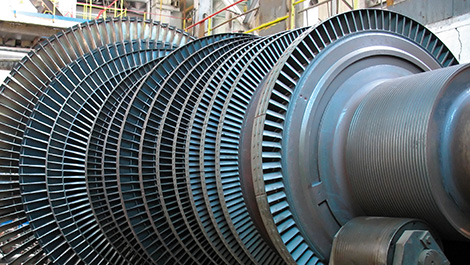Course Details
Your Growth, Our Mission

Course Description
The Training Course Will Highlight ?
Training Objective
By the end of this course delegates will be able to:
- Develop and understanding of the nature of corrosion in relation with the environment
- Gain knowledge on the different forms of corrosion
- Understand the causes of corrosion
- Understand the nature of corrosion process
- Understand the natural matching of a material with an environment
- Become familiar with the general classification of materials and causes of corrosion
- Have a good background on metallurgy and ferrous metals
- Gain a deeper understanding of materials and metallurgy
- Select materials and designs are most effective in cutting the cost of corrosion
- Know how can different forms of corrosion be designed out of the system
- Gain information on the oxidation of metals & alloys
- Know about uniform corrosion and galvanic corrosion
- Understand the difference between crevice corrosion and pitting corrosion
- Understand Microbiologically-Influenced Corrosion (MIC)
- Set guidelines for corrosion prevention
- Understand the applications and limitations of common corrosion inhibitors
- Know about the conventional methods and the electrochemical methods
- Know the emerging technologies for corrosion control, prevention, testing and monitoring
Target Audience
Corrosion Control Engineers & Personnel, Process Engineers, Metallurgists, Inspection Personnel, Mechanical Engineers, Material Selection Personnel, Plant Contractors, Operations Engineers, Team Leaders & Supervisors, Maintenance Supervisors, Senior Plant Supervisors, Mechanical Engineers, Corrosion Control & Monitoring Systems Personnel, Oil and Gas Production Facilities Personnel, Chemists, Chemical Engineers, Technicians and Supervisors, New Petroleum Engineers, Asset Management Personnel, Design & Construction Engineers, Team Leaders & Coordinators, Construction Coordinators, Maintenance Engineers, Technologists, Maintenance Team Leaders & Engineers, Personnel who are / will be responsible for detecting, inspecting, monitoring, controlling corrosion in oil and gas piping, pipelines used in production operations and Personnel responsible for metallurgy, corrosion or the prevention of failures in plant and equipment.
Training Methods
Daily Agenda
Introduction to Corrosion
Basic Concepts in Corrosion & Metal Degradation
Different Forms of Corrosion
- Uniform corrosion, Galvanic corrosion
- Dealloying and graphitization (graphitic corrosion)
- Intergranular stress corrosion cracking, weld decay and knife-line attack
- Exfoliation, Crevice corrosion, Pitting corrosion
- Filiform corrosion, Microbiologically-Influenced Corrosion (MIC)
- Environment-sensitive cracking, Hydrogen Damage, Corrosion fatigue, Fretting
- Erosion corrosion, impingement attack and cavitation damage, Stray current corrosion
Corrosion Related Chemistry & Electrochemistry
Atmospheric Corrosion
- Classification of atmosphere, Absolute humidity and relative humidity
- Calculation of time-of-wetness (ToW)
- Effect of moisture thickness on corrosion
- Effect of air pollutants, Corrosion behaviour of common metals and alloys in atmospheres
Principles of Cathodic Protection
Corrosion by Soils, Corrosion by Water & Corrosion by Steam
Localized Corrosion & Stress Corrosion
Fundamentals of Inhibitors
Metallurgical Factors Affecting Corrosion
Corrosion at High Temperatures
Alloy Behaviour at High Temperatures
Coatings for Corrosion Protection
Corrosion Testing & Materials for Corrosive Environments
Analysis and Correction of Corrosion Failures
How to Control & Prevent Corrosion
- Materials Selection and Design, Corrosion Resistant Coatings
- Cathodic & Anodic Protection, Corrosion Inhibitors, Corrosion Testing & Monitoring
Accreditation
BTS attendance certificate will be issued to all attendees completing minimum of 75% of the total course duration.
Quick Enquiry
Request Info
Related Courses
Your Growth, Our Mission

